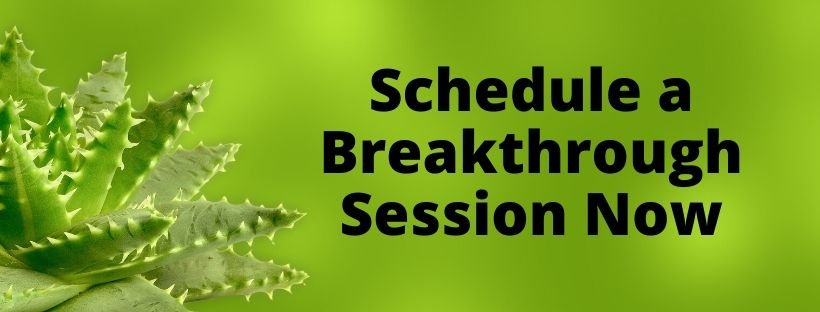
Adapted from episode 59 of The Perfect Stool podcast and edited for readability.
What are diverticulitis, diverticulosis and diverticular disease?
Today we are going to be doing somewhat of a deep dive into the world of diverticulitis, diverticulosis and diverticular disease. While people tend to use all of these terms interchangeably, there are distinctions between them. Diverticulosis simply means that there are pouches that are present in the large intestine (see image further down this page). The presence of pouches alone isn’t necessarily a problem. When these pouches become inflamed or infected, it is referred to as diverticulitis. Diverticular disease is a broad name of all of the symptoms that can be experienced due to these pouches forming. And this is, in fact, a super common condition as we age, with over 50% of people over the age of 60 and 60% of people over the age of 80 having colonic diverticula.
But let’s back up a little bit and talk about what exactly diverticular disease is, in case you haven’t heard of it. If you are diagnosed with diverticular disease it means that there are pouches, known as diverticula, in your colon or large intestine. They’re kind of like bubbles or bulges in the weaker areas of the wall of the colon. Just having them is called diverticulosis. Most people with diverticulosis are asymptomatic, so that alone isn’t cause for concern. However, when the diverticula become inflamed or infected by bacteria, this is called diverticulitis, which used to be estimated to happen in about 10 to 25% of people, although more recent estimates are around 5% of people with diverticulosis. Diverticulitis can be accompanied by fever, chills, tenderness over the affected area, nausea or vomiting, leukocytosis, or an increase in the number of your white blood cells, cramps, rectal bleeding and pretty severe discomfort in the lower left part of the abdomen. The pain will often be bad enough to necessitate significant lifestyle changes, or even a trip to the hospital.
About 25% of those suffering from this illness will see complications such as perforations, peritonitis or inflammation of the peritoneum or lining of the abdominal cavity, abscesses or collections of pus from bacterial infections, colonic fistula (which is when a diverticular abscess extends or ruptures into an adjacent organ such as the bladder, vagina or small intestine), or an intestinal obstruction. So if you have consistent pain on the lower left side of your abdomen, which may get worse over the course of several days, you should definitely see a doctor and determine if diverticular disease is at play. But I should also mention that there are some case studies of attacks of diverticulitis that mimic the symptoms of appendicitis, if the infected diverticula are on the right side in the cecum.
Something that makes this disease complex is that it is difficult to know when to seek medical help, and it is even somewhat difficult for doctors to diagnose. A diagnosis usually comes when a person has an acute attack, which requires a CT scan. Short of that, a blood test to reveal a high white blood cell count, a stool sample to check for abnormal bacteria, or a digital rectal exam may be done. Other possible tests that may be warranted include a barium enema with x-rays, a sigmoidoscopy (like a colonoscopy but of your sigmoid colon where most diverticula form) or a full colonoscopy.
One thing I learned while researching this is that diverticular disease is frequently accompanied by Irritable Bowel Syndrome, which may be coincidental, but there also is evidence to support diverticular disease leading to the development of IBS. In one study of acute uncomplicated diverticulitis, one year after the attack of diverticulitis, 45% of participants reported abdominal pain and 30% had altered bowel habits. Another study found an almost 5-fold increased risk of a diagnosis of IBS following an attack of acute diverticulitis. Of course what they may be seeing is an infection with pathogenic bacteria, which causes both the attack of diverticulitis as well as the subsequent symptoms of IBS, or perhaps the result of antibiotics often taken for diverticulitis attacks.
What causes diverticulosis and diverticulitis?
Researching this topic changed many of my preconceptions. For example, I found out the surprising fact that in two cross-sectional studies involving a total of over 2000 participants who had colonoscopies (second study link), constipation was not found to be a risk factor for diverticulosis. In fact, compared to people who had <7 bowel movements a week, those with >15 bowel movements a week had a greater risk for diverticulosis.
Some of most agreed-upon risk factors include aging, obesity, smoking, use of NSAIDs or non-steroidal anti-inflammatory drugs or aspirin, opioids, and a sedentary lifestyle.
The more disputed claims are that a diet that is very high in red meat but very low in fiber is to blame. The two cross-sectional studies I mentioned above did not support that claim, as there was no correlation between those factors and diverticulosis, as confirmed with colonoscopies. The author of those studies criticized the methodology of studies that did support it, but I’m still a bit on the fence after reviewing it all. The author also found that those with hard stools had reduced odds of diverticulosis.
Another theory is that the seated position of defection in western societies, on a toilet, leads to a lack of support of the colon, incomplete evacuation and backup in the sigmoid colon, where most diverticuli occur, due to ongoing pressure on this part of the colon. Squatting while defecating, like other primates do, might alleviate this problem.
Another popular theory that emerged was that diverticular disease could be a result of eating nuts, corn, popcorn and seeds. However, there have been studies that nullify this theory completely.
How do you treat diverticulitis?
In the allopathic medical world, the common treatment for an attack of diverticulitis is antibiotics. In severe or recurrent cases, laparoscopic lavage to wash out the diverticula or surgeries like bowel resections and colostomies may be necessary. Of course this depends on the type and severity of your symptoms. Someone dealing with a mild case would most commonly be prescribed antibiotics, including Rifaximin, an antibiotic commonly used for SIBO (Small Intestine Bacterial Overgrowth).
How do you prevent or reverse diverticular disease?
While there is some controversy around this recommendation, it certainly wouldn’t hurt to start by trying to gradually add more fiber from fruit and vegetables to your diet, as this is helpful for health overall and gut health in particular. A study of almost 48,000 men found that those who ate the most fiber (>32 grams/day) had a 42% lower risk of developing diverticulitis than those who ate the lowest amount of fiber. The risk was also higher in men who had a higher intake of fat and red meat along with low fiber. But I want you to take that in context. Knowing what we do about how ketogenic diets produce butyrate naturally in the colon and often help people resolve bowel issues, I wouldn’t want you to lump a ketogenic diet into this category. I’m assuming that the people in the study consuming this low fiber, high fat, high red meat diet were on more of a Standard American Diet, where the fat was coming from processed seed oils used for deep frying the fries that went along with the burgers and their buns, not from grassfed, high quality red meat, prepared at home and accompanied by healthy oils coming from avocados, as well as avocado oil and extra virgin olive oil, ideally atop a nice big salad with a healthy carb like sweet potato or winter squash accompanying it.
All of this makes sense to me because in the end, to have an infection in the diverticula, you may need an overgrowth of pathogenic bacteria, and pathogenic bacteria are kept in check by commensal bacteria, which feed on healthy foods that are high in fiber.
Historically, as I mentioned before, a common recommendation for people with diverticulitis was to avoid nuts, seeds, popcorn and corn. This was debunked, at least for corn, popcorn and nuts, in the Health Professionals Follow Up study I mentioned before with the 48,000 men. In fact, popcorn and nuts were actually found to be beneficial.
As always though, you should take your time when you eat and chew your food well, especially if you are eating nuts and seeds.
Dietary approaches you can take include eating more probiotic foods, again to continue providing beneficial bacteria to your system, drinking bone broth, which provides healing nutrients to your intestines and eating an anti-inflammatory diet (which for my personal bias tends more towards a paleo diet).
Reducing alcohol consumption is also a solid recommendation not just for your general health, but also because one study showed a 2.2 times great risk of developing diverticulosis in drinkers versus non-drinkers.
Supplements that may be helpful in soothing the gut lining include slippery elm, aloe vera, marshmallow root extract and DGL or Deglycyrrhizinated Licorice Root Extract. There’s a supplement with those four combined I often recommend to folks with H Pylori called DGL plus made by Pure Encapsulations. You can find that in my Fullscript* or Wellevate* Dispensaries.
And I checked and my new favorite supplement, butyrate, also has evidence supporting its use for diverticulitis, which makes sense because it helps feed and heal the your gut colonocytes, or the cells lining your large intestine, especially when you’re using forms of it like Tributyrin* that definitely get down to the large intestine, which we talked about in my last podcast. In one study of 52 patients with diverticulosis, patients in the experimental group who received 300 mg of sodium butyrate a day, which is a pretty low dose in my experience, had significantly fewer episodes of diverticulitis than those in the control group. While I don’t personally have diverticulosis, to my knowledge, I take butyrate for other reasons, including great stool quality, and currently take 2-3 500 mg pills a day of Tributyrin-X*. Now if you’re constipated, you should only start with one pill every 3 days – just a warning. Check out my last podcast or the blog/transcript version for more details on that. Those links will all be in the show notes.
So I hope that was helpful for those of you suffering from diverticular disease. As always, if you’re struggling with any type of gut health problem and are ready to get some professional help, you’re welcome to set up a free, 30-minute breakthrough session with me. We’ll talk about what you’ve been going through and I’ll tell you about my gut health coaching 5-appointment program in which I recommend lab tests, educate you on what the results mean and the protocols used by doctors to fix the problems revealed. Or if you’re ready to jump in right away or can just afford one appointment at a time, you can set up an 1-hour consultation with me.

*Product links are affiliate links for which I’ll receive a commission. Thanks for your support of my podcast and blog by using these links.

